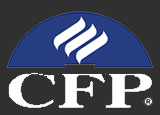It’s been a couple of months since the last newsletter (September 2023), and I apologize. The end of the year is one of our busiest times, both at the office and at home. And, if I had to pick my two least favorite months of the calendar, it would be, without a doubt, November and December. Lucky for us, the markets in 2023 thought otherwise.
November was an excellent month—and December used that forward momentum and piled on.
November Markets:
| Open | Close | ||||
| Index | November 1 | November 30 | Difference | Percent | |
| DJIA | 33,081.87 | 35,950.89 | 2,869.02 | 8.67% | |
| S&P500 | 4,201.27 | 4,567.80 | 366.53 | 8.72% | |
| Nasdaq | 12,887.06 | 14,226.22 | 1,339.16 | 10.39% |
December Markets:
| Open | Close | ||||
| Index | December 1 | December 29 | Difference | Percent | |
| DJIA | 35,914.45 | 37,689.54 | 1,775.09 | 4.94% | |
| S&P500 | 4,559.43 | 4,769.83 | 210.40 | 4.61% | |
| Nasdaq | 14,181.35 | 15,011.35 | 830.00 | 5.85% |
And lastly, November and December together:
| Open | Close | ||||
| Index | November 1 | December 29 | Difference | Percent | |
| DJIA | 33,081.87 | 37,689.54 | 4,607.67 | 13.93% | |
| S&P500 | 4,201.27 | 4,769.83 | 568.56 | 13.53% | |
| Nasdaq | 12,887.06 | 15,011.35 | 2,124.29 | 16.48% |
(Data from Yahoo Finance. Does not include dividends or capital gain distributions.)
Now that’s a good two months!
With that in mind, we must recognize that human nature is not conducive to long-term, successful investing. We often see the same fatal investing mistakes, as in people panicking out of a temporarily declining market and dumping money into a temporarily hot market. Human nature has subtly and relentlessly programmed our brains over thousands of years and thousands of surviving generations to avoid situations that are, let us say, uncomfortable.
What does our safety-minded human nature have to do with investing and creating wealth? What is even remotely uncomfortable with the S&P 500 rising 13.5% in the last two months of the year? I can answer that with another question: Do you remember how you felt when you looked at your September 2023 quarterly statement? (I’ll give you a hint—it wasn’t joy.) Below are those results.
July to September:
| Open | Close | ||||
| Index | July 3 | September 29 | Difference | Percent | |
| DJIA | 34,369.78 | 33,507.50 | -862.28 | -2.51% | |
| S&P500 | 4,450.48 | 4,288.05 | -162.43 | -3.65% | |
| Nasdaq | 13,798.70 | 13,219.32 | -579.38 | -4.20% |
(Data from Yahoo Finance. Does not include dividends or capital gain distributions.)
After opening those statements, that first week in October must have felt like the final straw for many investors. The whole year of 2022 was a train wreck. Then, we recovered a bit in the first part of 2023, indeed a welcome sigh of relief. But then the September statement arrived. It’s hard to be unemotional about those kinds of returns. Heck, it’s hard not to throw something!
But that’s why we are here. Not that we are unemotional about the markets—though we are not pessimistic, we are optimistic. Optimism is the only rational response. History doesn’t predict the future, but history has the only real data. Nothing about the US investing history should ever leave an investor thinking that the markets are going down—and they will stay down.
Yeah, but this time is different! We often hear that. It’s understandable—we are inundated with catastrophic news—these days, doomsday stories are available 24 hours a day, 7 days a week, 365 days a year. But, again, let us look at history—is there anything (yet) in the 21st century that compares unfavorably to the 20th century? Talk about a train wreck—the 20th century takes the cake. And even then, markets did extremely well in the long run.
When we speak of markets, we are really speaking of large groups of public companies. For example, the S&P500 comprises 500 of the most significant and successful companies in the world’s history. These companies are run by qualified people serving their whole careers with one goal in mind—to make their customers happy.
Despite all the complexities of a business: taxes, rules and regulations, geo-political uncertainty, currency fluctuations, pandemics, etc, they still manage a profit. And that profit is divied amongst the owners of those companies—investors like you and I, who own shares of them individually, within an ETF, or mutual fund.
The consumer runs our economy. They keep the whole thing humming along effectively and efficiently. If companies can’t please the consumer, the consumer will find one that does. It’s how a free market works—a voluntary exchange of value that satisfies both parties.
Investing in this process is what we do—and in the end, if we stick to the plan, everyone wins. (And we win with minimal effort—we simply invest in the greatest companies known to man. And they pay us a share of their profit!) Regardless of our inner voice whispering scary things or forming plots where this or that scenario doesn’t end well. That’s just our fight-or-flight survival skills kicking in at inopportune times. Surely, listen to that voice if you’re walking on a dark, unfamiliar street—but with investing, this time is never different—and history has shown that it always turns out OK in the end.
Thanks for reading—if you would like to go over your accounts or our plan for them, give us a call or shoot me an email. We’ll get something scheduled. I’ll get busy on the next newsletter right after my winter vacation—which, by the way, is next week. I no longer like cold weather, and I’m heading south for a week! (January 12 to 20.)
Martin Knight, MBA CFP®
Chesapeake Investment Advisors, Inc.
106 Spring Ave.
Chestertown MD 21620
800-994-0221 or 410-810-0735
Fax 410-810-3422
Cell Number 410-490-9415
Website: www.chesadvisors.com
Securities and Advisory Services offered through Geneos Wealth Management, Inc. Member FINRA/SIPC
This email, including attachments, may include confidential and/or proprietary information and may be used only by the person or entity to which it is addressed. If the reader of this email is not the intended recipient or his or her authorized agent, the reader is hereby notified that any dissemination, distribution or copying of this email is prohibited. If you have received this email in error, please notify the sender by replying to this message and delete this email immediately. Please note that electronic communication cannot be guaranteed to be secure. The transmission of personal information carries inherent risk.


